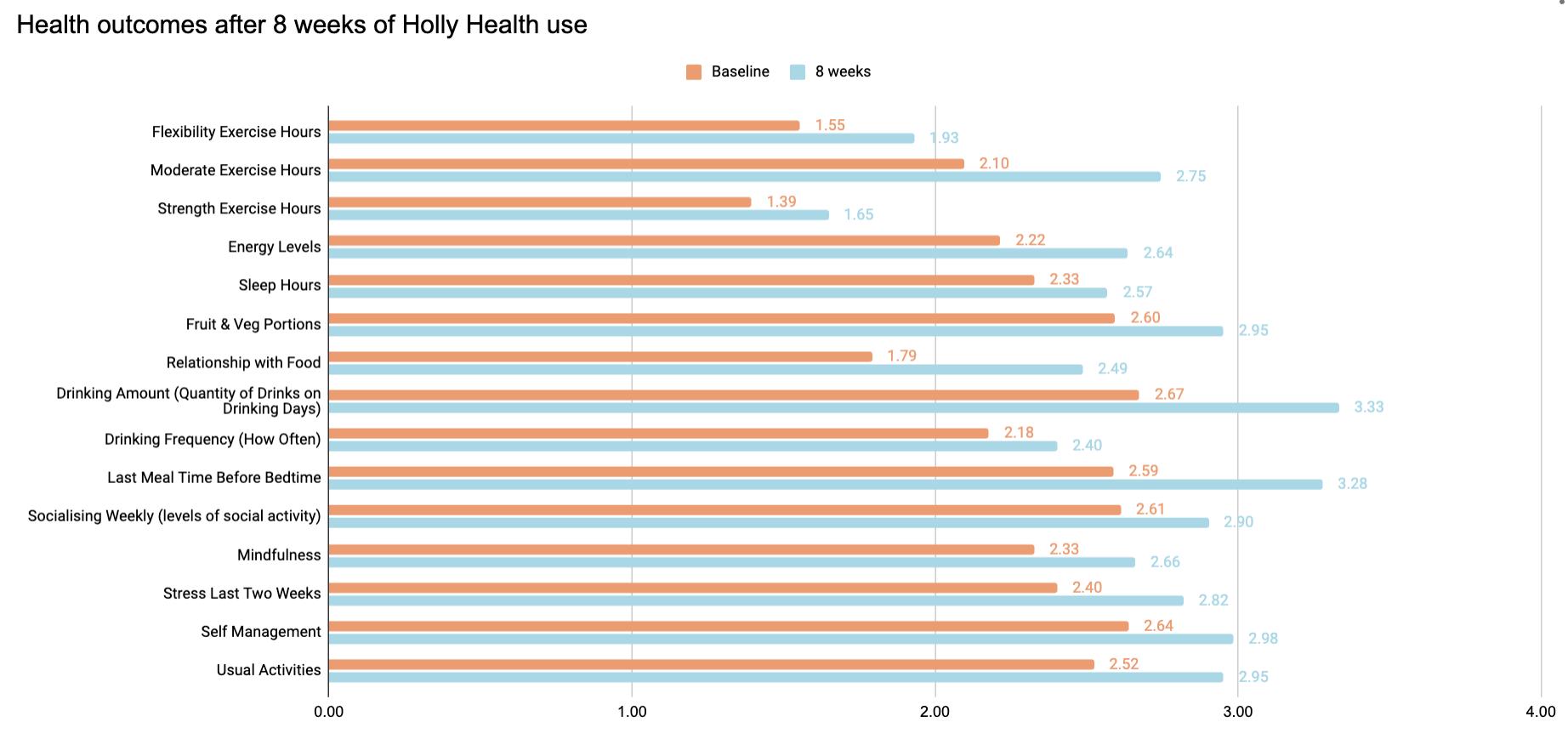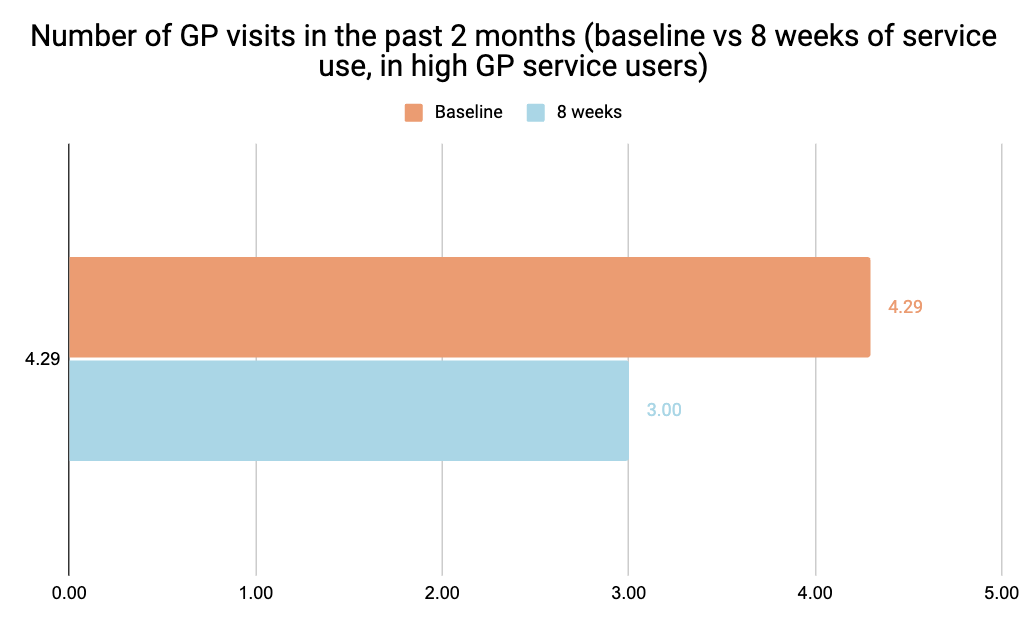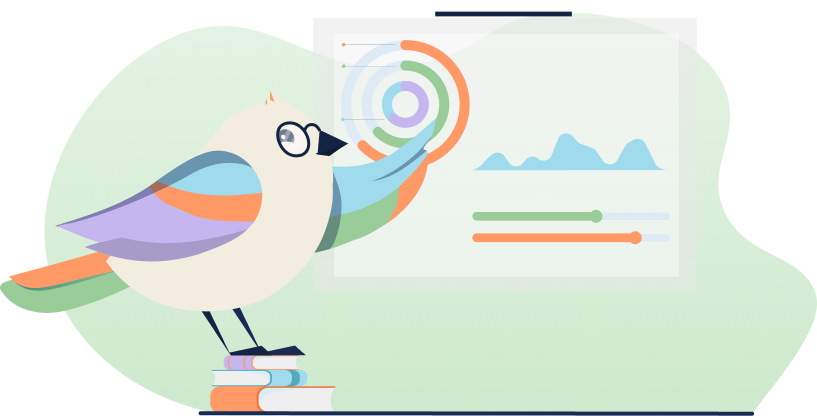Background and Use Case
Holly Health is a digital health platform supporting individuals in improving their health and wellbeing. It supports sustainable lifestyle habit changes through personalised app-based coaching, goal setting, nudges & boosts, tracking, interactive education and motivational messaging.
With the UK seeing large increases in years lived with long term conditions and health symptoms, affecting both quality of life for individuals, and strain on services in healthcare, it's crucial to find new scalable ways to increase population self management abilities and overall health and wellbeing.
This report focuses on data collected from over 28,475 Holly Health users in the UK, referred in from NHS primary care GP practices, who completed onboarding questionnaires, and 1824 people who completed both onboarding data and follow up surveys.
The platform uses a "traffic light" and Likert scoring system to assess users' health challenges at baseline, informing personalised content recommendations and coaching. After 8 weeks, users are encouraged to retake the questionnaire to track their progress and update recommendations.
This write up provides an overview of the baseline picture of health amongst this cohort and the average reported health changes, alongside user feedback, after 8 weeks of using Holly Health.
Baseline Health Statistics
At baseline, the primary care user cohort (28,475 people) presented with several prevalent health conditions and areas for improvement:
- Age Distribution: The largest age group was 55-64 years old, accounting for 22.7% of users, followed closely by 45-54 years old at 22.1%.
- Health Goal: The most common health goal was Sustainable Weight Management, selected by 38.6% of users, followed by General Health (18.5%) and Feel Better Mentally (15.6%).
- Common Conditions: Anxiety was the most frequently reported medical condition at 30.09%, followed by depression at 25.40%. Hypertension (21.34%) and high cholesterol (14.70%) were also significant.
- Multiple Long Term Conditions: 59% of the users report having 2 or more long term conditions, and 24% have 4 or more. 37% have a mental health diagnosis and 26% have both mental health and physical health conditions simultaneously.
- Exercise Habits: A substantial portion of users were below national guidelines for various exercise types: 63% for moderate exercise, 95% for flexibility, and 93% for strength.
- Nutrition: Nearly a third of users (31.74%) reported consuming 1 or fewer portions of vegetables/fruit per day, while 38.95% had 2-4 portions.
- Sleep and Energy: A significant 43.77% of users reported getting 6 hours of sleep or less per night. Furthermore, 52.97% reported feeling tired most days.
- Stress Levels: A combined 79% reported moderate to very high/high stress in the last two weeks.
Health Changes (Quantitative)
After 8 weeks of using Holly Health, primary care users demonstrated significant improvements across various health measures (based on improvements along the Likert scoring scale). These changes are based on service users who had low-to-medium scores at baseline in each area, and responded to the follow-up survey - a total of 1824 people.
- ONS4 Anxiety: There was a notable average reduction of 22.41% in ONS4 Anxiety scores, with 59.62% of users showing a decrease in anxiety levels. This is particularly impactful given that anxiety was the most reported baseline condition.
- Relationship with Food: Users showed a substantial 38.82% average improvement in their relationship with food, and 42.26% of individuals improved in this area.
- Moderate Exercise Hours: An impressive 31.00% average improvement was observed in moderate exercise hours, with nearly half (49.43%) of users increasing their moderate exercise. This suggests the program successfully encouraged more physical activity.
- ONS4 Happiness: Happiness levels saw a significant average improvement of 34.48%, with 61.31% of users reporting increased happiness.
- Weight Reduction: Users measuring weight experienced an average weight reduction of 4.13 kg over 8 weeks, representing a 4.5% decrease.
- Systolic Blood Pressure: Users measuring blood pressure experienced an average reduction of 3.5mmHG in systolic BP across all blood pressure tracking users, and a reduction of 8.74mmHG, in people with a high blood pressure reading at baseline (over 130 mmHG).

- Wider Improvements. Other notable improvements included:
- GP Appointments (all users): A potential reduction of 1.04 GP appointments per person, per year, or an 11% reduction.
- GP Appointments (higher service users with baseline of 3+ appointments per 8 weeks): A potential reduction of 8.4 GP appointments per high service user per year, or a 30% reduction.
- HbA1c: Average reduction of 3 mmol/mol.
- Flexibility Exercise Hours: 24.18% average improvement.
- Strength Exercise Hours: 18.23% average improvement.
- Energy Levels: 19.02% average improvement.
- Sleep Hours: 10.38% average improvement.
- Fruit & Veg Portions: 13.73% average improvement.
- Alcohol Drinking Amount (Quantity of Drinks on Drinking Days): 24.65% average improvement.
- Alcohol Drinking Frequency: 10.32% average improvement.
- Last Meal Time Before Bedtime: 26.64% average improvement.
- Socialising Weekly: 11.08% average improvement.
- Mindfulness: 14.33% average improvement.
- Stress Last Two Weeks: 17.33% average improvement.
- ONS4 Satisfaction: 29.06% average improvement.
- ONS4 Life Feels Worthwhile: 28.75% average improvement.
- Habit development: 62% reported developing one or more new automatic health habits.

User Feedback (Qualitative)
Users consistently provided positive feedback, highlighting the app's effectiveness in promoting self-reflection, motivation, and healthy habits:
- Many users appreciated the app's ability to make them "think about issues that you have" and "help themselves". For example, one user stated: "I like the app it makes you think about issues that you have. I have learnt that it is better to think about ways to help yourself rather than dwell on it." Another shared: "I think the app is very useful. It has helped me to try and help myself where I can."
- Someone else commented:
"I like the app it makes you think about issues that you have. I have learnt that it is better to think about ways to help yourself rather than dwell on it.”
- The app's motivational aspects, such as reminders and positive feedback for completing habits, were frequently mentioned as helpful. A user noted: "I use the app daily, usually more than once. The marking that I have completed a habit helps with motivation. The app and service helps and does encourage reflection". Another comment highlighted: "Holy health has been an important part of my day. The reminders motivate you and give you a sense of achievement."
- Users found the app easy to use and beneficial for daily well-being, especially when feeling down. One user commented:
"Easy to use. Very helpful on a daily basis and when feeling down"
- Several testimonials noted improvements in specific areas like walking more, feeling more confident, drinking more water, sleeping better, and engaging in gardening. For instance: "I have really enjoyed this holly app it has helped me to drink more water twice a day sleep a bit better done some gardening yesterday and to start to feel better about myself and with my confidence".
- The personalised nature of the goals and content was also a key positive, with users stating it "makes goals manageable" and offers "helpful reminders and clarification of goals suitable for me personally".
- The app fostered a sense of support, with comments like "it does give me a sense someone there for me" and:
"It makes you feel that someone cares”
- For individuals with specific conditions like Type 2 Diabetes, Holly Health was described as an "invaluable tool and resource" for managing health, increasing exercise, and developing sustainable habits. A user expressed: "I have found Holly Health an invaluable tool and resource in managing my Type 2 Diabetes, upping my exercise, creating good, sustainable habits to support and improve my general health and fitness."
Holly Health has demonstrated that it is a valuable tool for primary care users in the UK, observing significant improvements in both physical and mental well-being, while seeing a reduced need for primary care service support. The user-friendly, easy to use interface, and personalised approach are called out by user as impactful for their health improvement and self management processes.
Interested to learn more about how Holly Health supports healthcare providers and partners? Reach out to hello@hollyhealth.io.












